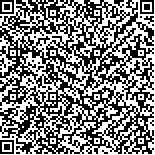| 引用本文: |
汪瑛,汪节,陈少飞.电针配合Schuell刺激法治疗中风后失语的临床研究[J].湖南中医药大学学报,2020,40(4):465-468[点击复制] |
|
| |
|
|
| 本文已被:浏览 3157次 下载 2164次 |
| 电针配合Schuell刺激法治疗中风后失语的临床研究 |
| 汪瑛,汪节,陈少飞 |
| (安徽中医药大学第二附属医院老年病科, 安徽 合肥 230000) |
| 摘要: |
| 目的 探讨电针配合Schuell刺激法治疗中风后失语的临床疗效。方法 选择2016年6月至2018年6月在本院接受治疗的中风后失语症患者100例进行研究。采用随机数字表法将患者分为对照组和观察组,每组50例,对照组行Schuell刺激法治疗,观察组在此基础上加以头电针治疗。对比两组患者干预后疗效,干预前后自发谈话、理解、复述、命名、神经功能评分及血液流变学指标。结果 观察组总有效率为94.0%,明显高于对照组的80.0%(P<0.05);干预后,两组患者自发谈话、理解、复述、命名得分均较干预前明显上升,且观察组高于对照组(P<0.05);干预后,两组患者NIHSS评分、全血黏度、红细胞聚集指数、红细胞沉降及纤维蛋白原均较干预前明显降低,且观察组低于对照组(P<0.05)。结论 电针配合Schuell刺激法治疗中风后失语较单独使用Schuell刺激法治疗可明显提高疗效,提升自发谈话、理解、复述、命名能力,改善神经功能及血流动力学。 |
| 关键词: 中风 失语 电针 Schuell刺激 语言功能 神经功能 血液流变学 |
| DOI:10.3969/j.issn.1674-070X.2020.04.015 |
| 投稿时间:2019-04-09 |
| 基金项目:安徽省自然科学基金项目(1808085MH278)。 |
|
| Clinical Study on Electroacupuncture Combined with Schuell Stimulation in the Treatment of Aphasia after Stroke |
| WANG Ying,WANG Jie,CHEN Shaofei |
| (Department of Geratologs, The Second Affiliated Hospital of Anhui University of Chinese Medicine, Hefei, Anhui 230000, China) |
| Abstract: |
| Objective To explore the clinical effect of electroacupuncture combined with Schuell stimulation in the treatment of aphasia after stroke. Methods A total of 100 patients with post-stroke aphasia treated in our hospital from June 2016 to June 2018 were selected for the study. The patients were divided into 2 groups with 50 cases in each group by random number table method. The control group was treated with Schuell stimulation, while the observation group was treated with scalp electroacupuncture based on that. The curative effect after intervention, spontaneous conversation, comprehension, retelling, naming, neurological function and hemorheological indexes before and after intervention were compared between the 2 groups. Results The total effective rate of the observation group was 94.0%, which was significantly higher than 80.0% of the control group (P<0.05). After intervention, the scores of spontaneous conversation, comprehension, retelling and naming in both groups increased significantly than before intervention, and the observation group was higher than the control group (P<0.05). After intervention, the NIHSS scores, the whole blood viscosity, erythrocyte aggregation index, erythrocyte sedimentation and fibrinogen of the 2 groups decreased significantly than before intervention, and the observation group was lower than the control group (P<0.05). Conclusion Compared with Schuell stimulation alone, electroacupuncture combined with Schuell stimulation can significantly improve the efficacy of aphasia after stroke, enhance the ability of spontaneous conversation, comprehension, retelling and naming, and improve neurological function and hemodynamic indexes. |
| Key words: stroke aphasia electroacupuncture Schuell stimulation linguistic function neurological function hemorheology |
|

二维码(扫一下试试看!) |
|
|
|
|




